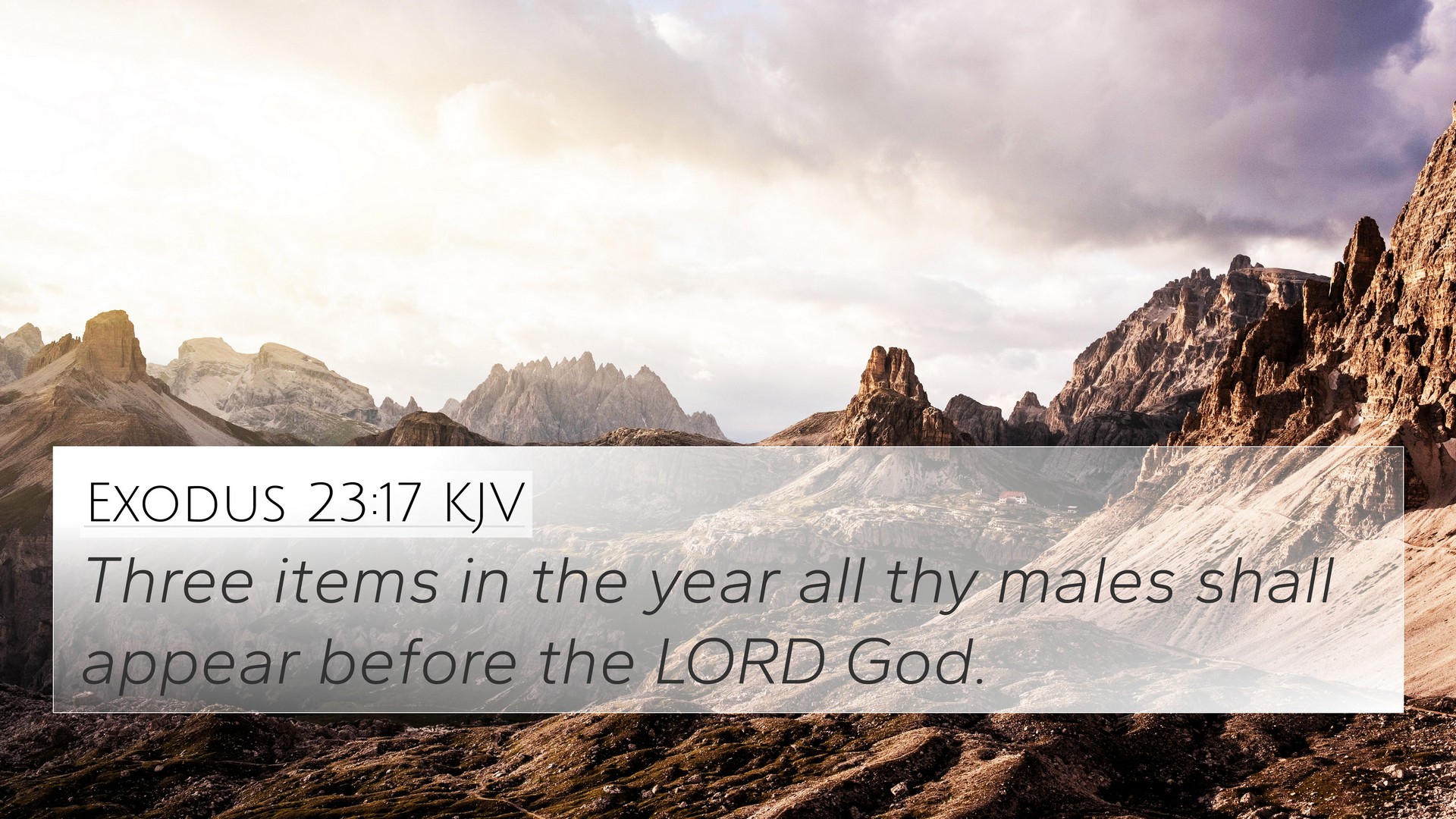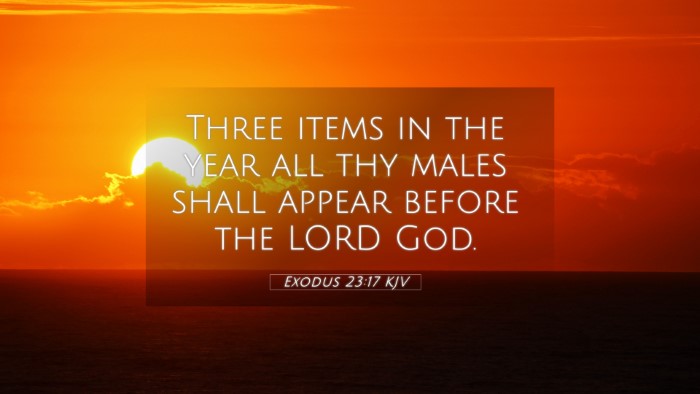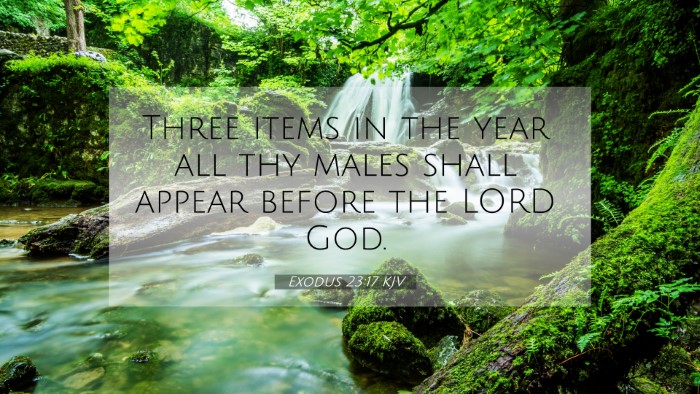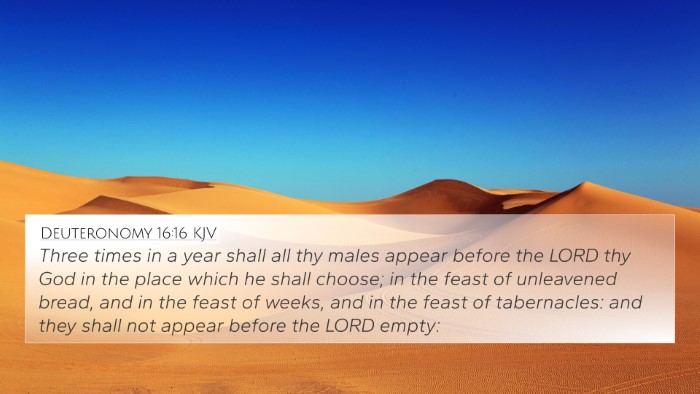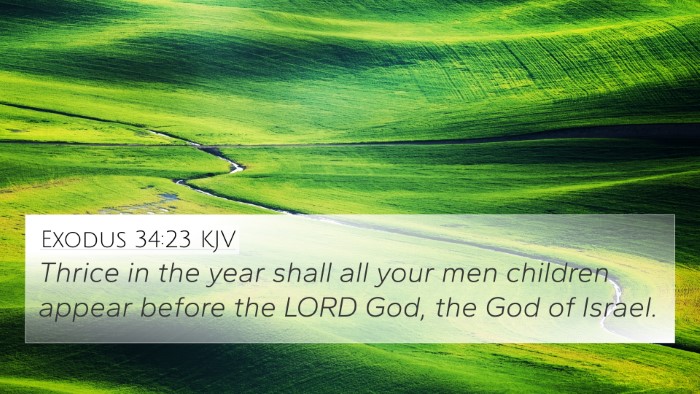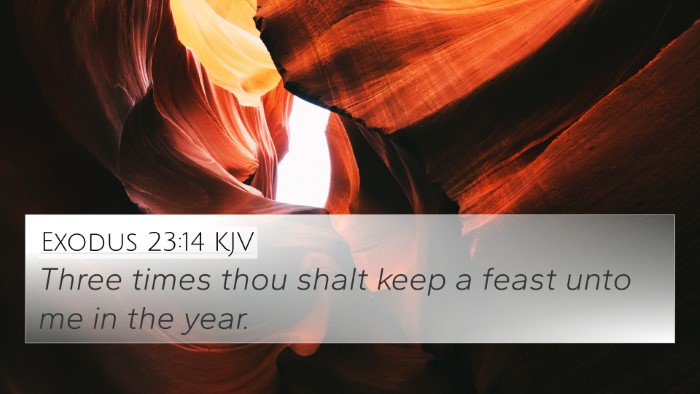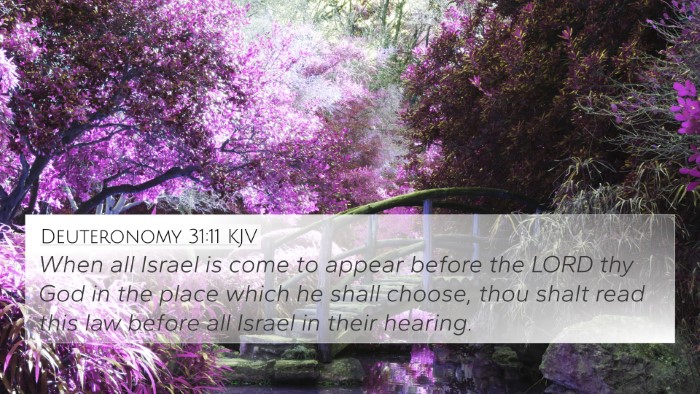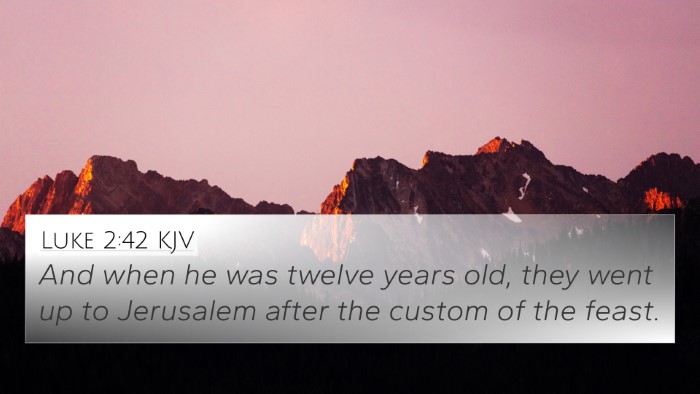Understanding Exodus 23:17
Verse: "Three times a year shall all thy males appear before the Lord God." (Exodus 23:17 KJV)
Summary of Meaning
The verse Exodus 23:17 emphasizes God's instruction to the Israelites regarding religious festivals. The command highlights the importance of communal worship and the requirement for all male members of the community to present themselves before God three times a year. This practice underlines the necessity of acknowledging God’s sovereignty and expressing gratitude through acts of devotion.
Commentary Insights
Matthew Henry:
Matthew Henry notes that these occasions were meant for the males to worship as a representation of their families, which shows the family structure's significance in worship. Each festival serves as an opportunity to reflect on God's providence and deliverance.
Albert Barnes:
Barnes emphasizes that these three annual festivals correspond to the Passover, Pentecost, and the Feast of Tabernacles. Each of these occasions is vital in commemorating God's redemptive acts throughout Israel’s history.
Adam Clarke:
Clarke points out the socio-religious aspects of this verse, arguing that these pilgrimages served not only as spiritual obligations but also as moments for community bonding, reinforcing unity among the tribes of Israel while strengthening their covenant relationship with God.
Cross References
- Deuteronomy 16:16: "Three times a year shall all thy males appear before the Lord thy God in the place which he shall choose..."
- Exodus 34:23: "Thrice in the year shall all your men children appear before the Lord God, the God of Israel."
- Leviticus 23:4-44: Provides details on the feasts of the Lord, establishing the timetable of these gatherings.
- Matthew 26:5: Alludes to the Passover feast which has roots in the festival mandates of Exodus.
- Luke 2:41-42: Chronicles the annual pilgrimage of Jesus’ parents to the Passover feast, illustrating the continued observance of this command.
- 1 Corinthians 5:7-8: Discusses Christ as our Passover, connecting the Old Testament observance with New Testament theology.
- Hebrews 10:24-25: Author encourages believers not to forsake assembling together, parallel to communal worship in Exodus.
- Galatians 4:10: Paul warns against observing days and months, possibly referencing the festivals, highlighting the shift in covenant understanding.
- Acts 2:1: Describes the coming of the Holy Spirit on the day of Pentecost, a direct link to one of the festivals mentioned in Exodus.
- James 1:17: Focuses on God's gifts, similar to the offerings brought during these feasts as an act of worship and gratitude.
Relational Themes
This verse connects deeply with the themes of:
- Worship: Highlighting the requirement for God's people to gather and honor Him.
- Community: The importance of shared faith practices in enhancing societal bonds.
- Obedience: Reflecting the necessity of following God's commandments as a demonstration of loyalty.
- Remembrance: Each festival calls to mind God's past provision and deliverance.
- Family: The emphasis on males representing their families underscores the family unit’s role in worship.
Thematic Bible Verse Connections
Examining connections between Bible verses facilitates a comprehensive understanding of scripture, including:
- Tools for Bible cross-referencing enhance comprehension of themes and doctrines.
- Bible concordance aids in locating verses that speak on similar subjects.
- Thematic Bible verse connections allow for the drawing of parallels between Old and New Testament teachings.
- Utilizing scripture to support themes found in Exodus 23:17 emphasizes the interconnectedness of biblical theology.
- Comparative Bible verse analysis fosters a deeper understanding of the narrative of salvation.
Conclusion
Exodus 23:17 stands as a pivotal verse that anchors the Israelites' understanding of worship and obedience. By linking related Bible verses, one can uncover richer meanings and applications within the larger context of scriptural teachings. This method of engagement provides believers with the tools necessary for personal study and a deeper appreciation of the sacred texts.
